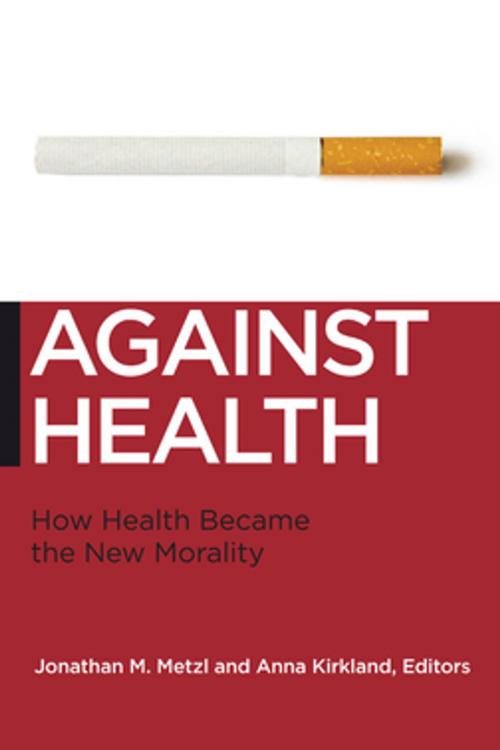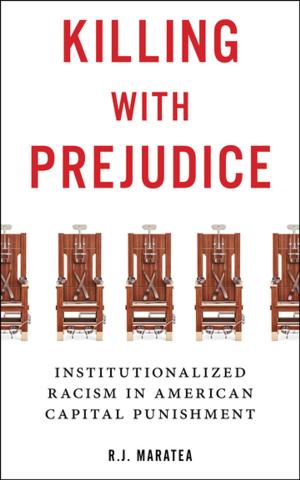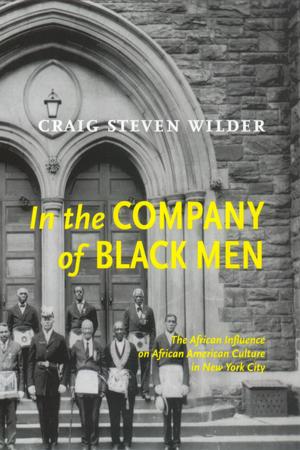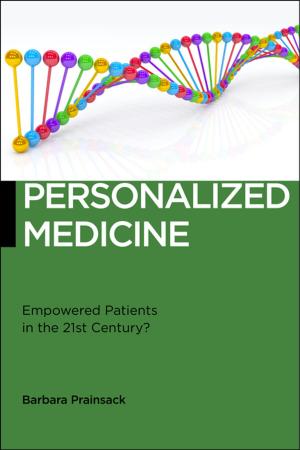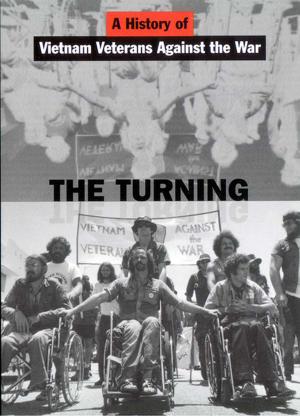Against Health
How Health Became the New Morality
Nonfiction, Social & Cultural Studies, Social Science, Sociology, Health & Well Being, Medical| Author: | ISBN: | 9780814761106 | |
| Publisher: | NYU Press | Publication: | November 15, 2010 |
| Imprint: | NYU Press | Language: | English |
| Author: | |
| ISBN: | 9780814761106 |
| Publisher: | NYU Press |
| Publication: | November 15, 2010 |
| Imprint: | NYU Press |
| Language: | English |
You see someone smoking a cigarette and say,“Smoking is bad for your health,” when what you mean is, “You are a bad person because you smoke.” You encounter someone whose body size you deem excessive, and say, “Obesity is bad for your health,” when what you mean is, “You are lazy, unsightly, or weak of will.” You see a woman bottle-feeding an infant and say,“Breastfeeding is better for that child’s health,” when what you mean is that the woman must be a bad parent. You see the smokers, the overeaters, the bottle-feeders, and affirm your own health in the process. In these and countless other instances, the perception of your own health depends in part on your value judgments about others, and appealing to health allows for a set of moral assumptions to fly stealthily under the radar.
Against Health argues that health is a concept, a norm, and a set of bodily practices whose ideological work is often rendered invisible by the assumption that it is a monolithic, universal good. And, that disparities in the incidence and prevalence of disease are closely linked to disparities in income and social support. To be clear, the book's stand against health is not a stand against the authenticity of people's attempts to ward off suffering. Against Health instead claims that individual strivings for health are, in some instances, rendered more difficult by the ways in which health is culturally configured and socially sustained.
The book intervenes into current political debates about health in two ways. First, Against Health compellingly unpacks the divergent cultural meanings of health and explores the ideologies involved in its construction. Second, the authors present strategies for moving forward. They ask, what new possibilities and alliances arise? What new forms of activism or coalition can we create? What are our prospects for well-being? In short, what have we got if we ain't got health? Against Health ultimately argues that the conversations doctors, patients, politicians, activists, consumers, and policymakers have about health are enriched by recognizing that, when talking about health, they are not all talking about the same thing. And, that articulating the disparate valences of “health” can lead to deeper, more productive, and indeed more healthy interactions about our bodies.
You see someone smoking a cigarette and say,“Smoking is bad for your health,” when what you mean is, “You are a bad person because you smoke.” You encounter someone whose body size you deem excessive, and say, “Obesity is bad for your health,” when what you mean is, “You are lazy, unsightly, or weak of will.” You see a woman bottle-feeding an infant and say,“Breastfeeding is better for that child’s health,” when what you mean is that the woman must be a bad parent. You see the smokers, the overeaters, the bottle-feeders, and affirm your own health in the process. In these and countless other instances, the perception of your own health depends in part on your value judgments about others, and appealing to health allows for a set of moral assumptions to fly stealthily under the radar.
Against Health argues that health is a concept, a norm, and a set of bodily practices whose ideological work is often rendered invisible by the assumption that it is a monolithic, universal good. And, that disparities in the incidence and prevalence of disease are closely linked to disparities in income and social support. To be clear, the book's stand against health is not a stand against the authenticity of people's attempts to ward off suffering. Against Health instead claims that individual strivings for health are, in some instances, rendered more difficult by the ways in which health is culturally configured and socially sustained.
The book intervenes into current political debates about health in two ways. First, Against Health compellingly unpacks the divergent cultural meanings of health and explores the ideologies involved in its construction. Second, the authors present strategies for moving forward. They ask, what new possibilities and alliances arise? What new forms of activism or coalition can we create? What are our prospects for well-being? In short, what have we got if we ain't got health? Against Health ultimately argues that the conversations doctors, patients, politicians, activists, consumers, and policymakers have about health are enriched by recognizing that, when talking about health, they are not all talking about the same thing. And, that articulating the disparate valences of “health” can lead to deeper, more productive, and indeed more healthy interactions about our bodies.
